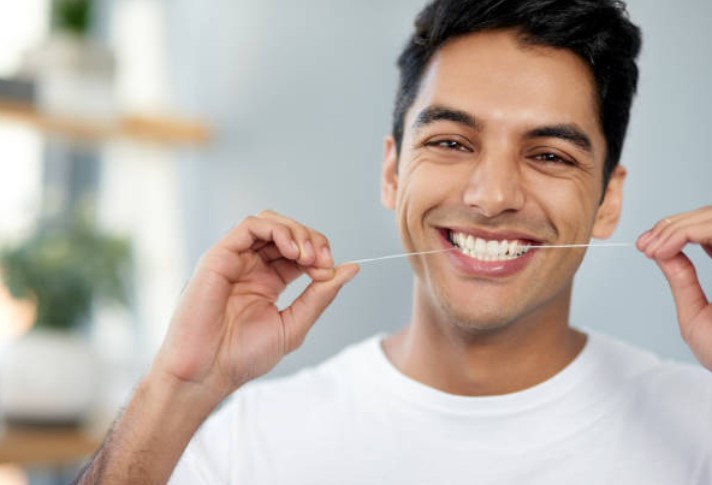
Ah, the age-old dental dilemma: floss or water floss? It’s a question that swirls in the minds of many, often dismissed as a minor detail in the grand scheme of oral hygiene. But beneath the surface of this seemingly simple choice lies a hidden world of plaque-battling warriors and gum-pampering heroes, each vying for a starring role in your dental care routine.
Let’s dive into the intricate tapestry of oral health, where flossing and water flossing weave their magic, painting a picture of pearly whites and radiant smiles. Whether it is a regular dental floss or water flosser, your goal is to clean those tight areas to prevent plaque problems.
Science in the Spotlight: The Plaque Problem
Imagine a microscopic battlefield within your mouth. On one side, an army of bacteria, armed with sticky plaque, marches relentlessly across your teeth. On the other, your trusty oral hygiene routine stands guard. Brushing tackles the visible enemy, but those sneaky plaque soldiers often find refuge in the tight spaces between your teeth, a no-man’s-land for bristles.
This is where flossing and water flossing step in, armed with different tactics to vanquish the plaque menace.
Flossing Fury: Threading the Tight Spaces
Think of floss as a stealthy ninja, gracefully maneuvering through the narrow passages between your teeth. With a gentle sawing motion, it scrapes away plaque and food debris, leaving your gumline squeaky clean. Flossing comes in various forms, from traditional string to flavored picks and even spongy options for sensitive gums.
Water Flossing Wonder: A Hydropower Hero
Enter the water flosser, a futuristic knight wielding a pressurized stream of water. This high-tech warrior blasts away plaque with pinpoint accuracy, reaching even the deepest crevices your toothbrush can’t access. Some models even offer pulsating jets and air-infused water for an extra cleaning punch.
Choosing Your Champion: The Showdown
So, who wins the crown in this dental duel? Well, both flossing and water flossing have their strengths and weaknesses. Flossing might be slightly more effective at removing plaque, but it requires dexterity and can be uncomfortable for some. Water flossers are gentler on sensitive gums and easier to use, but they might not reach every nook and cranny as effectively.
Ultimately, the best choice depends on your individual needs and preferences. Consider these factors:
- Dexterity: If you struggle with manual dexterity, a water flosser might be easier to handle.
- Gum sensitivity: If you have sensitive gums, a water flosser with adjustable pressure settings can be gentler.
- Lifestyle: If you’re on-the-go, pre-threaded floss picks or portable water flossers offer greater convenience.
READ ALSO: Preventive Dentistry for Lifelong Health
The Winning Strategy: A Synergistic Alliance
The real magic, however, lies not in choosing one over the other, but in harnessing the power of both. Think of it as a tag-team effort: floss takes down the big guns, while the water flosser mops up the remaining stragglers. Studies have shown that combining both methods leads to significantly better plaque removal and gum health compared to using either alone.
Crafting Your Bespoke Dental Defense
Remember, there’s no one-size-fits-all solution when it comes to oral hygiene. The key is to experiment, find what works best for you, and create a consistent routine that fits seamlessly into your lifestyle. Here are some tips to get you started:
- Floss once a day, preferably before bed.
- Water floss for about two minutes per session.
- Choose a floss or water flosser that you enjoy using.
- Make it a habit by associating it with another activity, like watching TV or listening to music.
- Consult your dentist for personalized recommendations based on your oral health needs.
By embracing the combined power of flossing and water flossing, you’ll be well on your way to vanquishing the plaque villains and building a fortress of sparkling smiles and robust oral health. So, step into the arena, choose your weapons, and fight the good fight! Your sparkling smile and grateful gums will thank you for it.
